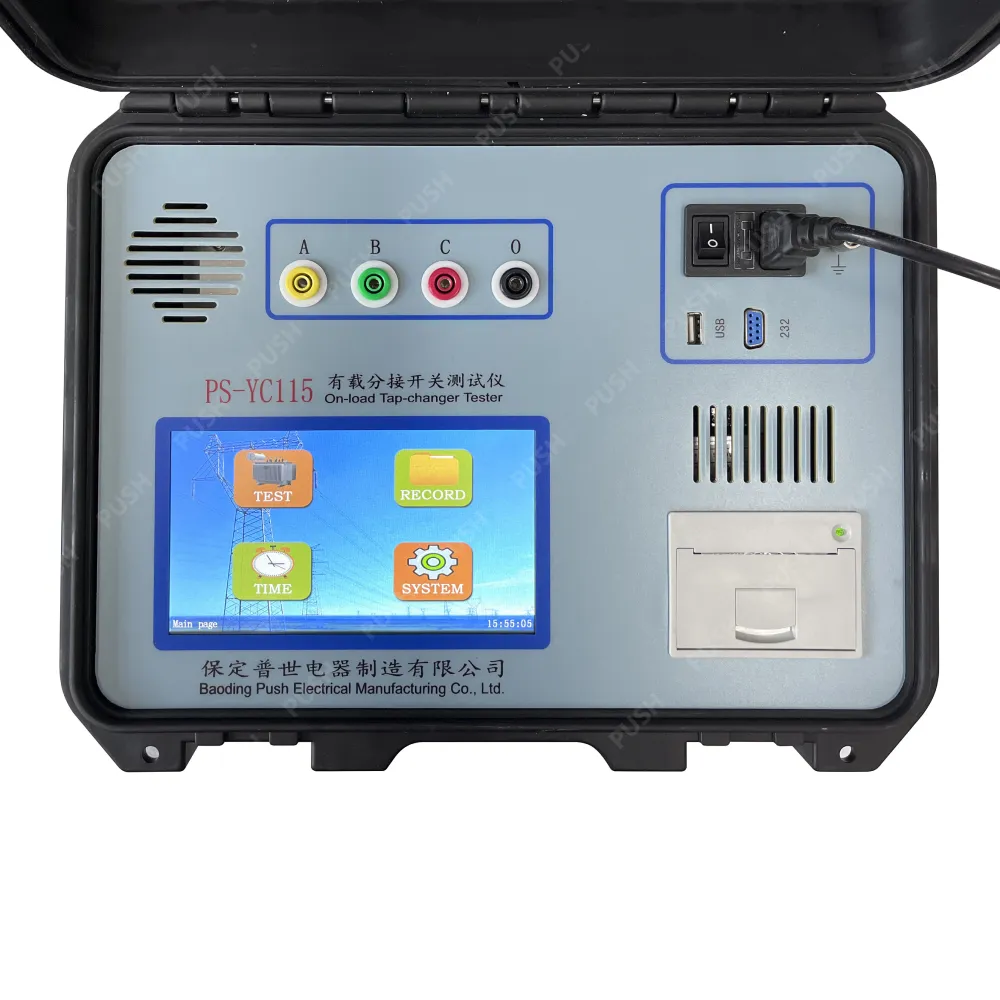 English
English


Innovative Oil Testing Machine for Accurate Measurement and Quality Control in Various Industries
The Importance of Oil Tester Machines in Quality Control
In today’s industrial landscape, the quality of oil products is paramount. Whether it is for automotive, industrial, or food applications, ensuring that oil meets specific standards is crucial for performance and safety. This is where oil tester machines come into play. These sophisticated devices are integral to the quality control processes in various industries, providing critical analysis of oil properties and ensuring compliance with regulatory standards.
What is an Oil Tester Machine?
An oil tester machine is a specialized piece of equipment designed to assess the quality of oil. It can measure various properties such as viscosity, moisture content, acidity, and the presence of contaminants. Advanced models may also test for specific properties relevant to particular types of oil, such as thermophysical and electrical characteristics. This data is essential for producers, refiners, and end-users who need to make informed decisions regarding oil quality.
The Functions of Oil Tester Machines
1. Viscosity Measurement Viscosity is one of the key indicators of oil quality. An oil tester machine typically measures viscosity using different methods, such as rotational viscometry or kinematic viscometry. The viscosity of oil affects how well it flows and lubricates machinery, making this measurement crucial in applications ranging from automotive engines to industrial machinery.
2. Moisture Content Analysis Water contamination in oil can lead to significant operational issues, including rust formation and degradation of lubricating properties. Oil tester machines often employ methods like Karl Fischer titration or capacitive sensing to detect moisture levels. Maintaining low moisture content is essential for prolonging the lifespan of oil and machinery alike.
3. Acidity Testing The acidity level in oil, often measured as Total Acid Number (TAN), indicates the degree of oxidation and deterioration. High acidity can lead to corrosion and reduced effectiveness as a lubricant. Oil tester machines can quickly and accurately quantify acidity, allowing for timely interventions in oil maintenance.
oil tester machine

4. Contaminant Detection Various contaminants can affect oil quality, including debris, metals, and particulates. Advanced oil testers can utilize techniques like spectroscopy or laser particle size analysis to detect these impurities. Identifying contaminants helps prevent machinery damage and ensures that the oil performs as expected.
5. Thermal and Electrical Properties For electrical insulating oils, tester machines can assess breakdown voltage, dissipation factor, and other thermal properties. This is particularly important in the utility sector where transformer oils are crucial for safe and efficient operations.
Benefits of Using Oil Tester Machines
The implementation of oil tester machines in manufacturing and maintenance processes offers numerous benefits
- Enhanced Quality Control Regular testing ensures that oil meets required standards, reducing the likelihood of machinery failures and ensuring safety. - Cost-Effectiveness Early detection of oil issues can save significant costs associated with damage repairs and equipment downtime. - Environmental Compliance Many industries have stringent regulations concerning oil quality and environmental impact. Oil tester machines help companies comply with these regulations, helping to protect the environment. - Improved Efficiency Regularly tested oil is more likely to perform optimally, leading to increased efficiency in operations and extended equipment life.
Conclusion
Oil tester machines are indispensable tools for various industries that depend on high-quality oil. By providing accurate and reliable analysis of oil properties, these machines play a critical role in maintaining efficiency, safety, and regulatory compliance. Investing in advanced oil testing technology not only enhances product quality but also contributes to operational success and sustainability in the long run. As industries continue to evolve, the importance of oil tester machines will only grow, underscoring their role in ensuring that oil products meet the highest standards.
-
Differences between open cup flash point tester and closed cup flash point testerNewsOct.31,2024
-
The Reliable Load Tap ChangerNewsOct.23,2024
-
The Essential Guide to Hipot TestersNewsOct.23,2024
-
The Digital Insulation TesterNewsOct.23,2024
-
The Best Earth Loop Impedance Tester for SaleNewsOct.23,2024
-
Tan Delta Tester--The Essential Tool for Electrical Insulation TestingNewsOct.23,2024





